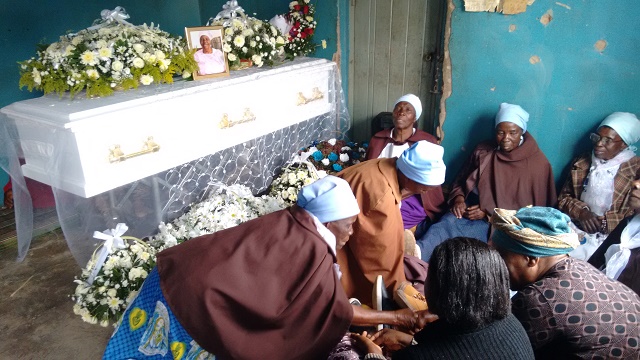
I was in South Africa at the time of the xenophobic attacks in April this year. Cushioned away in the horrendously expensive suburb of Hyde Park, I was far away from any forms of physical violence. But I watched the unrest unfold on the news with a very heavy heart. There were workers from both Zimbabwe and Mozambique at the lodge I was staying in. One of the Zimbabwean security guards, Thembani Ndlovu, lost his brother last year.
“We were shocked to hear about his death. No one expected it, and so we did not have any money to bring back his body,” he said. “We had to ask relatives to help us, and afterwards I came to work in South Africa. Things were hard at home. I know I could die here, but I need to survive for now. I was lucky I knew someone who got me this job.”
Ndlovu went on to tell me about the countless phone calls he had made, the strength he had to display in front of his mother and children, and the crushing pain of loss and despair. Unfortunately, his story is not uncommon in the many narratives that make up Zimbabwe’s precarious past, present and future.
The death of a loved one is a complex and emotionally crippling experience. Proximity matters. This means, losing a loved one in the diaspora is often even harder to deal with. So many Zimbabwean families are fragmented – separated by a border that signifies the difference between a hungry child and a fed one. Losing someone that far away also adds an extra financial burden: repatriation of the body and funeral arrangements. If your family is anything like mine, the funeral could last up to four days. Four days of three meals a day for about thirty to forty people at a time, bus fare for relatives in the rural areas, a coffin and a burial order. These costs along with the crushing pain of grief are enough to make anyone fall apart.
Recently, thousands of Zimbabweans were exposed to violent xenophobia in South Africa. Many of them chose to return to the country, but there were stories of those whose loved ones didn’t make it to the buses on time, and whose whereabouts are unknown. The death of any of these people results in a chain of events and expenses for the family of the deceased who are often unprepared for such costs.
About 400 bodies are repatriated to Zimbabwe every month from South Africa alone. To repatriate a body costs anything from $857 – $1,973, an amount that is extremely difficult to raise for many of the families of traders that cross the border daily. To repatriate a body from the UK with the help of a funeral parlour, can cost up to £2,500. With an estimated three million Zimbabweans in South Africa, repatriation costs will continue to be a factor for many families here. Funeral Insurance providers like Fidelity Life Assurance recorded profits of US$2.9 million last year, and funeral insurance providers continue to increase with telecom companies like Econet cashing in on this morbid business with their EcoSure services.
But as of the end of 2014, only 30% of Zimbabweans had either medical or funeral insurance. This means that in the event of a car accident, heart attack or even a prolonged illness, only about 30% of us have a fund that can cover medical emergencies. In the event of a loved one dying in the diaspora, only about 30% of us are as prepared for the procedures that follow. Proximity matters. There’s no telling how close death is, and there’s no such thing as being over-prepared for it.
Source: Her Zimbabwe
Words by Vimbai Midzi
Photograph by Joseph Munda
